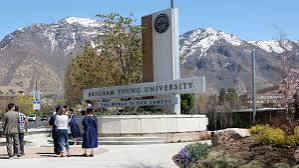BREAKING NEW: Brigham Young University announces changes to its honor code after protests.see more details

🏛️ Background & Catalyst
In spring 2019, students at Brigham Young University (BYU) and BYU‑Idaho organized significant protests—often referred to as “Return Honor”—calling for reform of the Honor Code Office’s disciplinary procedures . These protests were sparked by student accounts shared on social media and anonymous platforms like Instagram, where peers of color and LGBTQ+ students detailed being reported for seemingly minor infractions—one student dyed their hair, another was reprimanded for holding hands—that highlighted systemic issues in enforcement .
—
Key Changes Announced (May 14, 2019)
Honor Code Office Director Kevin Utt outlined three immediate reforms:
1. Full Transparency at First Meeting
Students will now be informed why they were summoned and the nature of the alleged violation right at their initial meeting, addressing previous uncertainty around undisclosed allegations .
2. Disclosure of Reporter Identity
The name of the person reporting a violation will be disclosed at the outset—unless there are safety concerns—replacing ambiguous or anonymous charges that often unnerved students .
3. Clarity on Investigation Process
Students will receive a clear outline of how investigations unfold, the evidence standard (preponderance of evidence), possible outcomes, and available support resources from the very beginning .
In addition, language was cleaned up on housing forms that unintentionally implied students had to report others, clarifying that “encouraging” compliance is not equivalent to “turning someone in” .
—
University & Student Reactions
Administration’s viewpoint: Utt emphasized respect and fairness in interactions, acknowledging student concerns and pledging ongoing dialogue and procedural adjustments .
Student response: Many appreciated the move, though some viewed it as only a “bare minimum.” They continue to push for stronger oversight, including allowing peer advocates and ensuring protective measures for marginalized students—especially LGBTQ+ and students of color .
> *“It’s kind of the bare minimum,”* said Emma Williams, who found the changes modest but still hopeful .
A focal point in the student debate remained the disparities affecting LGBTQ+ students. This pressure fueled a later 2020 amendment removing explicitly anti-homosexual behavior from the Honor Code—though practical prohibitions (e.g., restrictions on hand-holding or dating) remained in effect .
—
Prior Related Reforms
While 2019 focused on procedural transparency, previous reforms had addressed other critical areas:
Sexual assault amnesty (2016–2017): BYU implemented an amnesty policy to ensure survivors reporting assault wouldn’t be punished under the Honor Code. This included clearer boundaries between the Honor Code Office and Title IX Office .
Clarity on LGBTQ+ language (2020): The Honor Code’s language around same-sex behavior was revised to remove certain explicit terms—but affirmations of “same-sex romantic behavior” as still disallowed persisted .
—
📌 Summary Snapshot
Aspect Before 2019 Changes Announced May 14, 2019 Later Adjustments
Notification to student Often unclear or absent Clear reason & details at first meeting –
Reporter identity Anonymous or unclear Disclosed name (if safe) –
Investigation process Vague or unrevealed Explained clearly upfront –
Housing form language Implied mandatory reporting Revised for clarity –
Sexual assault amnesty Lacking until 2016 Implemented in 2016–17 –
LGBTQ+ policy language Explicit anti-gay clauses Removed in 2020, but restrictions remain Policy clarified in 2023
—
Looking Ahead
Utt stressed that the May 2019 bulletin was just the beginning, with continued student feedback guiding “ongoing refinement of policies, trainings, and practices” . However, students continue to call for more robust oversight, clearer advocacy rights, and systemic change—especially for LGBTQ+ voices and people of color who remain disproportionately affected. The evolution since then shows BYU’s willingness to adapt, but the push for deeper cultural change endures.
—
Let me know if you’d like a deep dive into any specific area—such as the amnesty policy, systemic bias concerns, comparisons to other universities, or how follow-up reforms in 2020–23 rolled out in practice.
